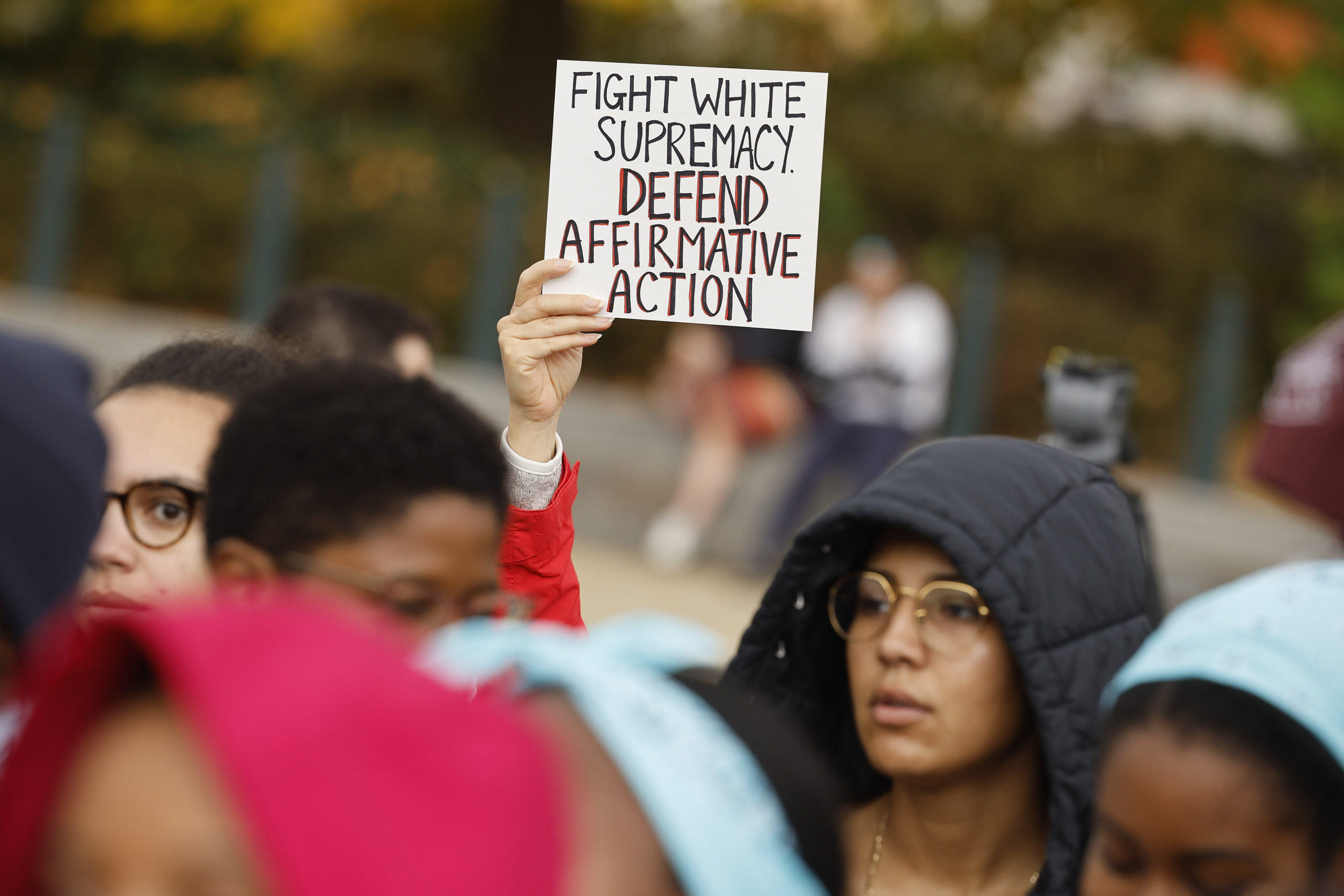Harvard University suggested in a statement Thursday that it will use essays to continue to weigh students’ race following a ruling by the Supreme Court that struck down affirmative action.
The Supreme Court ruled that Harvard University and the University of North Carolina’s use of race-based affirmative action admissions policies were unconstitutional. Following the ruling, Harvard University said it will use applicants’ essays detailing how race has affected their lives in an effort to “comply with the Court’s decision,” according to a university statement. (RELATED: Half Of Americans Oppose Race-Based Admissions At Elite Colleges Ahead Of SCOTUS Ruling: Poll)
“Today, the Supreme Court delivered its decision in Students for Fair Admissions v. President and Fellows of Harvard College,” the press release stated. “The Court held that Harvard College’s admissions system does not comply with the principles of the equal protection clause embodied in Title VI of the Civil Rights Act. The Court also ruled that colleges and universities may consider in admissions decisions ‘an applicant’s discussion of how race affected his or her life, be it through discrimination, inspiration, or otherwise.’ We will certainly comply with the Court’s decision.”
The Court’s Thursday decision overturns Grutter v. Bollinger, which allowed higher education institutions to use race as a determining factor in its admissions process.
“Harvard’s and UNC’s admissions programs violate the Equal Protection Clause of the Fourteenth Amendment,” the Supreme Court ruled in both the Harvard University and the University of North Carolina cases.
In light of the ruling, the American Civil Liberties Union (ACLU) encouraged universities to continue to consider race in a way that complies with the Court’s ruling, according to a tweet from the organization. The ACLU suggested that universities eliminate the “use of standardized test scores in admissions” and broaden their “recruitment efforts to underserved communities.”
The Court heard oral arguments in October from Students for Fair Admissions, a nonprofit that fights race-based policies, who claimed that the University of North Carolina allegedly uses race as a determining factor through every step of its admissions process, while Harvard University allegedly puts a specific limit on how many minority students it allows into the university.

Proponents for affirmative action in higher education rally in front of the U.S. Supreme Court on October 31, 2022 in Washington, DC. (Photo by Chip Somodevilla/Getty Images)
Harvard University will continue to weigh how it will alter its admissions process to maintain its “essential values” while complying with the court’s ruling, according to its press release.
“For almost a decade, Harvard has vigorously defended an admissions system that, as two federal courts ruled, fully complied with longstanding precedent,” the press release stated. “In the weeks and months ahead, drawing on the talent and expertise of our Harvard community, we will determine how to preserve, consistent with the Court’s new precedent, our essential values.”
All content created by the Daily Caller News Foundation, an independent and nonpartisan newswire service, is available without charge to any legitimate news publisher that can provide a large audience. All republished articles must include our logo, our reporter’s byline and their DCNF affiliation. For any questions about our guidelines or partnering with us, please contact licensing@dailycallernewsfoundation.org.


